#where's Virginia Woolf
Explore tagged Tumblr posts
Text

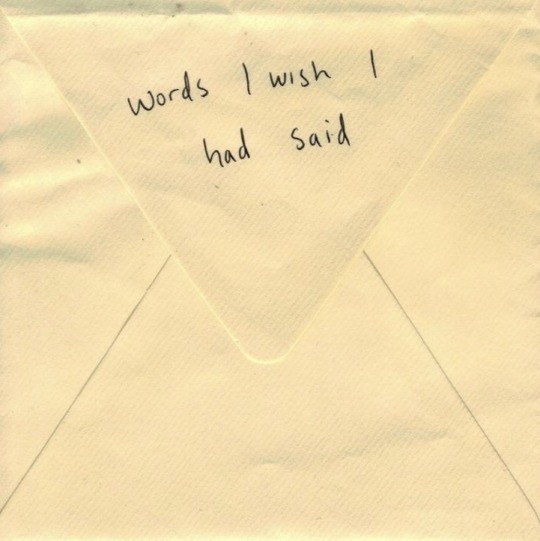


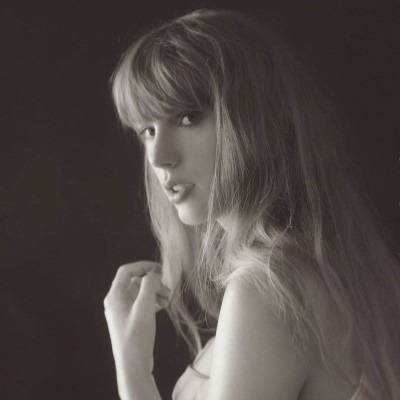
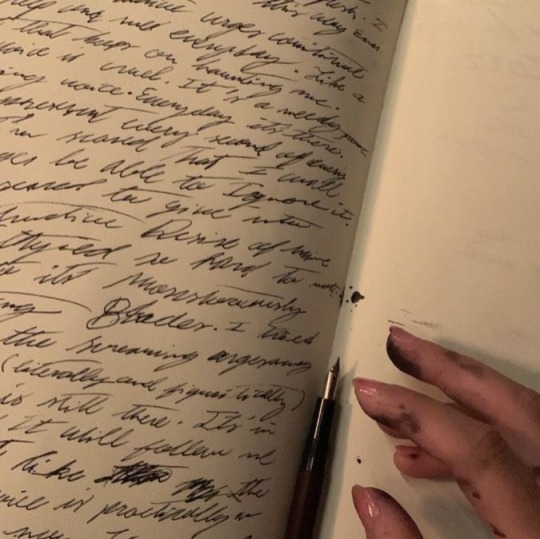
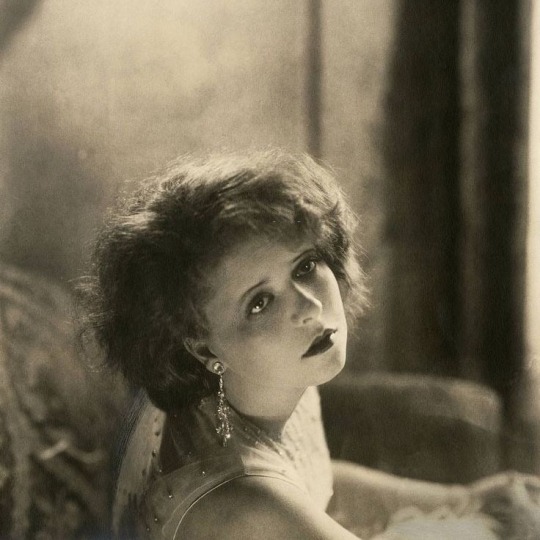


the tortured poets department.
❝all's fair in love and poetry.❞
#taylor swift#the tortured poets department#ts11#ttpd#poetry#aestethic#clara bow#grammys#virginia woolf#moodboard#ts11 aesthetic#take me to the lakes where all the poets went to die
248 notes
·
View notes
Text
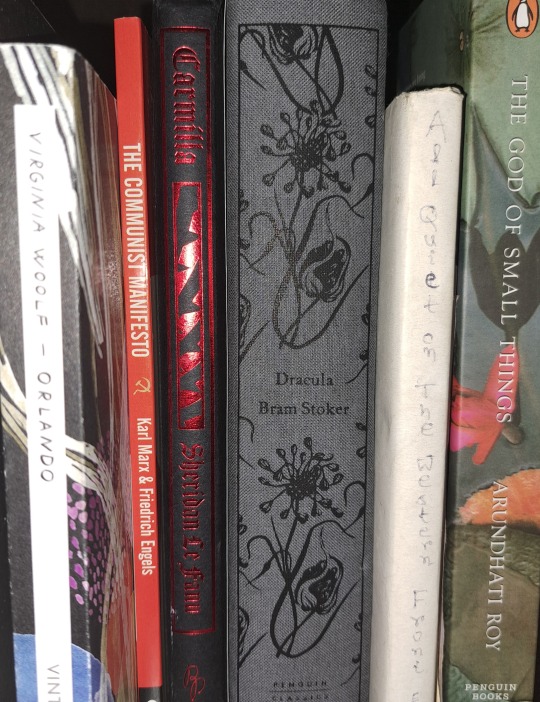
the 'Mama, the Government says I'm a Terrorist' collection.
Where have all the graveyards gone Gone to flowers, every one When will we ever learn? When will we ever learn?
#virginia woolf#karl marx#friedrich engels#sheridan le fanu#bram stoker#erich maria remarque#arundhati roy#book recs#communism#im crying listening to the song#pete seeger#where have all the flowers gone#ceasefire#anti war
30 notes
·
View notes
Text
People that post pixelated stolen pictures of like, deer with pink bows on them with text over the top like "when I am psycho about him because I'm just a girl <3 <3 " and then tag it with classic female authors like Virginia Woolf and Sylvia Plath deserve to be sent to the internet Gulag.
#like virginia woolf would not fucking say that#why tag a feminist author if you are going to spout gender existentialist non sense?#it's all aesthetic no braincell#I'm just a girl culture meets book aesthetic culture where people pretend to be well read to look intresting#virginia woolf#sylvia plath#feminism#female authors
3 notes
·
View notes
Text
I just finished Orlando by Virginia Woolf and maybe it's the burnt-out student in me who's deep in her exam phase rn but I'm- I dunno, I chose this book for my literature exam a year ago, knowing basically nothing about Woolf besides the fact that she was a famous writer (yeah is a bit embarrassing as a linguistics and literature student but hey, I'm technically still in my second year of literature so bohoo) - and I read Orlando and... I don't really feel it? Like maybe it's because I barely have time to read and analyze all the works on my reading list for my exam but uhh- or the fact that as a non-native speaker, overly descriptive and flowery language is really hard to understand for me and it makes it boring but... I don't like her writing style. Like the excessive nature descriptions and Orlando's self-talk and seemingly a bit weird mind.
I just think it's so strange because I was like uh Woolf is well-known, feminist and queer icon kinda so like yayyy!! But here I am and my rating is 6/10. Like I like the premise (like trans rep??), the acknowledging of gender roles, the comments of the biographer, the various references to other works and writers of the Elizabethan age, Restoration etc. but I just don't feel that it's that amazing. Maybe I'm just ignorant. I'm working on 2 braincells rn so it might be that but honestly, somebody tell me what makes this story that great, thw writing so marvellous because for me it's just mid rn. Help me change my mind and maybe enlighten me?
#i might just be in my post-book clarity phase still where I'm just shook#but ehhh#Virginia Woolf#Orlando#I like the story behind Orlando's character too#With Vita as the inspiration#but the writing itself? eugh#I read Evelina by Frances Burney from 1778 and I liked that novel more lmao even tho it's older#Kate Chopin's The Awakening is also amazing but Orlando feels like a hit or miss and for me it's a miss just based on my reading experience#it felt so tedious
3 notes
·
View notes
Text
we need more actors doing a whole liz taylor/richard burton thing im tired of b list men leaving their wives and children for pop stars
6 notes
·
View notes
Text
i read 9 books last january what the fuck was my problem. girl there were essay deadlines. the deadlines girl
#where did i find time for that…january is so busy. anyway it will be far less this year but that’s okay ive already read one book i loved…#about 20 pages into we need 2 talk about kevin but having to pause that for one more day while i death wrestle with one last ogre (essay).#and then. i think virginia woolf after that. exciting!#reading tag
6 notes
·
View notes
Text
An hour, once it lodges in the queer element of the human spirit, may be stretched to fifty or a hundred times its clock length; on the other hand, an hour may be accurately represented on the timepiece of the mind by one second. This extraordinary discrepancy between time on the clock and time in the mind is less known than it should be and deserves fuller investigation.
Virginia Woolf, Orlando
2 notes
·
View notes
Text
Lime Ranch
If I’d had to guess, I would have thought “limerence” meant a tendency to speak in anapestic trimeter. My phone’s autocorrect would like to argue that it isn’t even a real word, and the “Lime Ranch” that it assumes I must have meant actually doesn’t even sound like a bad flavor. I’d like to try that, I think. Like a zesty, creamy guac…
#here’s where I admit the things I didn’t know#Virginia Woolf wasn’t Amurican?#Does i go before e after ch? Or is that still after c?#embarrassing secrets
1 note
·
View note
Text
that one guy in virginia wolf’s first novel is just like regulus for real
#virginia woolf fandom where you guys at#i am required to read her whole discography so i WILL make it fun#mr hirst you are bitter and prejudiced and evil but you learn to express your emotions a little bit and i love you
0 notes
Text
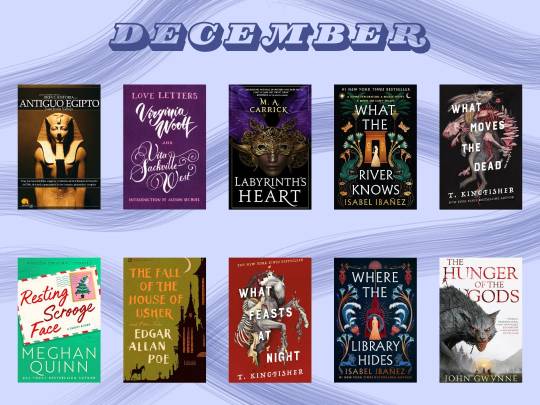
these are the books I've read this December!!
I absolutely adored the Rook and Rose trilogy and can’t wait to dive into it again <3
I had been looking forward to reading The Secrets of the Nile duology, but it turned out to be quite a disappointment. On the bright side, the Sworn Soldier series by T. Kingfisher was a fantastic discovery!
Also, I have finished the second book of the Bloodsworn Saga. Even though it has a slow beginning, I absolutely can’t wait to read the final book (Orka, my baby, she’s doing nothing wrong, and I support her unconditionally!).
❄️❄️❄️❄️❄️❄️❄️❄️❄️❄️❄️❄️❄️❄️❄️❄️❄️❄️❄️
-Breve historia del Antiguo Egipto by Juan Jesús Vallejo ⭐️⭐️⭐️
-Love Letters: Virginia Woolf and Vita Sackville-West with an introduction by Alison Bechdel ⭐️⭐️⭐️
-Labyrinth's Heart by M. A. Carrick ⭐️⭐️⭐️⭐️⭐️
-What the River Knows by Isabel Ibañez ⭐️⭐️⭐️
-What Moves the Dead by T. Kingfisher ⭐️⭐️⭐️⭐️⭐️
-The Fall of the House of Usher by Edgar Allan Poe ⭐️⭐️
-Resting Scrooge Face by Meghan Quinn ⭐️⭐️⭐️⭐️
-What Feasts at Night ⭐️⭐️⭐️⭐️
-Where the Library Hides by Isabel Ibañez ⭐️⭐️
-The Hunger of the Gods by John Gwynne ⭐️⭐️⭐️⭐️⭐️
#december reads#ancient egypt#virginia woolf#vita sackville west#love letters#m a carrick#labyrinth’s heart#edgar allan poe#the fall of the house of usher#rook and rose trilogy#what the river knows#where the library hides#isabel ibañez#what moves the dead#what feasts at night#sworn soldier#t kingfisher#resting scrooge face#meghan quinn#the hunger of the gods#john gwynne#orka skullsplitter#booklr#academia#bookworm#book recommendations#studyblr#romance novels#fantasy novels
0 notes
Text
one crime of the new york apartment is that I cannot sing or jump around in moments where I need to emotionally exert myself without annoying others
#I am a musical creature#even though I cannot sing very well#need a hug and a kiss on my shoulder from my beloved weighted blanked cough I mean girlfriend#It was weird enough a couple days ago where I was like. feeling the urge to do a scene from whos afraid of virginia woolf#thats not really normal girl behavior to be honest#I used to do scenes with my ex best friend and sing with him and like I miss that so so so much#but alas!#anyway throwback to the time I was so sad that he was being a dick that I cried doing a richard ii monologue at an open mic#cool!#I need to be at home I think and see a cat who loves me no matter what I do
1 note
·
View note
Text
Finding an enjoyable mediocre movie is the hardest task on earth
#like. a movie for normal people but it’s decent#the rarest kind of movie by far#my two modes are fun kitsch and Actually Good#like if you don’t want to watch a gnome named gnorm OR who’s afraid of Virginia Woolf#I don’t know what to tell you#wait. third mode is movie where nothing happens#I love those#mine
0 notes
Text
Terry Pratchett about fantasy ❤
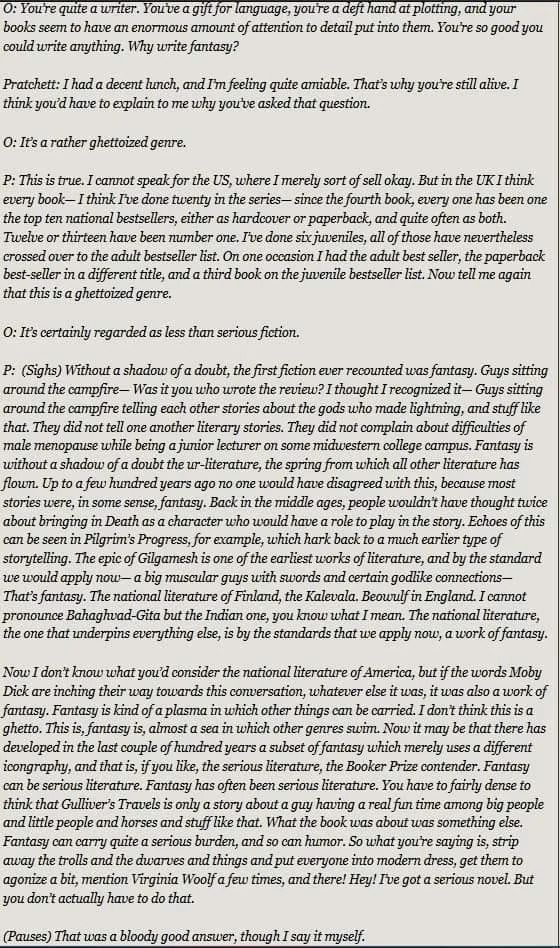
Terry Pratchett interview in The Onion, 1995 (x)
O: You’re quite a writer. You’ve a gift for language, you’re a deft hand at plotting, and your books seem to have an enormous amount of attention to detail put into them. You’re so good you could write anything. Why write fantasy?
Terry: I had a decent lunch, and I’m feeling quite amiable. That’s why you’re still alive. I think you’d have to explain to me why you’ve asked that question.
O: It’s a rather ghettoized genre.
Terry: This is true. I cannot speak for the US, where I merely sort of sell okay. But in the UK I think every book— I think I’ve done twenty in the series— since the fourth book, every one has been one the top ten national bestsellers, either as hardcover or paperback, and quite often as both. Twelve or thirteen have been number one. I’ve done six juveniles, all of those have nevertheless crossed over to the adult bestseller list. On one occasion I had the adult best seller, the paperback best-seller in a different title, and a third book on the juvenile bestseller list. Now tell me again that this is a ghettoized genre.
O: It’s certainly regarded as less than serious fiction.
Terry: (Sighs) Without a shadow of a doubt, the first fiction ever recounted was fantasy. Guys sitting around the campfire— Was it you who wrote the review? I thought I recognized it— Guys sitting around the campfire telling each other stories about the gods who made lightning, and stuff like that. They did not tell one another literary stories. They did not complain about difficulties of male menopause while being a junior lecturer on some midwestern college campus.
Fantasy is without a shadow of a doubt the ur-literature, the spring from which all other literature has flown. Up to a few hundred years ago no one would have disagreed with this, because most stories were, in some sense, fantasy. Back in the middle ages, people wouldn’t have thought twice about bringing in Death as a character who would have a role to play in the story. Echoes of this can be seen in Pilgrim’s Progress, for example, which hark back to a much earlier type of storytelling. The epic of Gilgamesh is one of the earliest works of literature, and by the standard we would apply now— a big muscular guys with swords and certain godlike connections— That’s fantasy. The national literature of Finland, the Kalevala. Beowulf in England. I cannot pronounce Bahaghvad-Gita but the Indian one, you know what I mean. The national literature, the one that underpins everything else, is by the standards that we apply now, a work of fantasy.
Now I don’t know what you’d consider the national literature of America, but if the words Moby Dick are inching their way towards this conversation, whatever else it was, it was also a work of fantasy. Fantasy is kind of a plasma in which other things can be carried. I don’t think this is a ghetto. This is, fantasy is, almost a sea in which other genres swim. Now it may be that there has developed in the last couple of hundred years a subset of fantasy which merely uses a different icongraphy, and that is, if you like, the serious literature, the Booker Prize contender. Fantasy can be serious literature. Fantasy has often been serious literature. You have to fairly dense to think that Gulliver’s Travels is only a story about a guy having a real fun time among big people and little people and horses and stuff like that. What the book was about was something else. Fantasy can carry quite a serious burden, and so can humor. So what you’re saying is, strip away the trolls and the dwarves and things and put everyone into modern dress, get them to agonize a bit, mention Virginia Woolf a few times, and there! Hey! I’ve got a serious novel. But you don’t actually have to do that.
(Pauses) That was a bloody good answer, though I say it myself.
7K notes
·
View notes
Text
this tracklist has me thinking so many thoughts you guys.
they broke up a fortnight into tour... the first show post joever was in florida... who's afraid of little old me being a twist on who's afraid of virginia woolf a film which starred elizabeth taylor and richard burton about a couple whose relationship breaks down at late night drinks in front of people... my boy only breaks his favourite toys - is she the toy??? free from the slammer where the slammer is an obvious reference to jail after all the criminal metaphors of her and joe tricking the system... but daddy i love him being a reference to the little mermaid where she gave up her voice for a man... clara bow being a 1920's film star who found her voice, married a guy who denied they were ever married publicly and then died + the majority of her fame coming from silent films where she literally didn't need to have a voice and then successfully transitioning into 'talkies' (films with sound).... the smallest man who ever lived vs. 'the loudest woman this town has ever seen who had a marvellous time ruining everything'... oh boy.
#taylor swift#taylor and joe#joe alwyn#ts11#the tortured poets department#putting pieces together#fortnight#florida!!!#who's afraid of little old me?#my boy only breaks his favourite toys#free from the slammer#but daddy i love him#clara bow#the smallest man who ever lived
1K notes
·
View notes
Text
Point of View: the Biggest Thing You're Missing!
Point of view is one of the most important elements of narrative fiction, especially in our modern writing climate, but you rarely hear it seriously discussed unless you go to school for writing; rarely do help blogs or channels hit on it, and when they do, it's never as in-depth as it should be. This is my intro to POV: what you're probably missing out on right now and why it matters. There are three essential parts of POV that we'll discuss.
Person: This is the easiest part to understand and the part you probably know already. You can write in first person (I/me), second (You), and third person (He/she/they). You might hear people talk about how first person brings the reader closer to the central character, and third person keeps them further away, but this isn't true (and will be talked about in the third part of this post!) You can keep the reader at an intimate or alien distance to a character regardless of which person you write in. The only difference--and this is arguable--is that first person necessitates this intimacy where third person doesn't, but you still can create this intimacy in third person just as easily. In general, third person was the dominant (and really the only) tense until the late 19th century, and first person grew in popularity with the advent of modernism, and nowadays, many children's/YA/NA books are written in first person (though this of course doesn't mean you can't or shouldn't write those genres in the third person). Second person is the bastard child. Don't touch it, even if you think you're clever, for anything the length of a novel. Shorter experimental pieces can use it well, but for anything long, its sounds more like a gimmick than a genuine stylistic choice.
Viewpoint Character: This is a simple idea that's difficult in practice. Ask yourself who is telling your story. This is typically the main character, but it needn't be. Books like The Book Thief, The Great Gatsby, Rebecca, Dr. Jekyll and Mr. Hyde, and the Sherlock series are told from the perspective of a side character who isn't of chief importance to the narrative. Your viewpoint character is this side character, the character the reader is seeing the world through, so the main character has to be described through them. This isn't a super popular narrative choice because authors usually like to write from the perspective of their most interesting character, but if you think this choice could fit your story, go for it! You can also swap viewpoint characters throughout a story! A word of warning on that: only change your viewpoint character during a scene/chapter break. Switching mid-scene without alerting the reader (and even when you do alert the reader) will cause confusion. I guarantee it.
Means of Perception; or, the Camera: This part ties the first two together. If you've ever heard people talk about an omniscient, limited, etc. narrator, this is what they mean. This part also includes the level of intimacy the reader has with the viewpoint character: are we in their heads, reading their thoughts, or are we so far away that we can only see their actions? If your story is in a limited means of perception, you only have access to your character's head, eyes, and interpretations, where an omniscient narrator sees through all characters' heads at once. (This doesn't eliminate the viewpoint character--most of your writing will still be in that character's head, but you're allowed to reach into other characters' thoughts when needed. You could also be Virginia Woolf, who does fluidly move through everyone's perspectives without a solid viewpoint character, but I would advise against this unless you really are a master of the craft.) Older novels skew towards third person omniscient narration, where contemporary novels skew towards first person limited. You also have a spectrum of "distant" and "close." If omniscient and limited are a spectrum of where the camera can swivel to, distant and close is a spectrum of how much the camera can zoom in and out. Distant only has access to the physical realities of the world and can come off as cold, and close accesses your character's (or characters', if omniscient) thoughts. Notice how I said narration. Your means of perception dramatically effects how your story can be told! Here's a scene from one of my stories rewritten in third-person distant omniscient. The scene is a high school football game:
“Sometimes,” he said. “Not much anymore.” “It’s not better, then?” She shivered; the wind blew in. “A little.” His tone lifted. “I don’t know if it’ll ever be better, though.” She placed a hand on his arm, stuttered there, and slipped her arm around his waist. “Did it help to be on your own?” He raised an eyebrow. “You were there.” “Yes and no.” “And the guys, the leaders.” “Come on,” she heckled. “Okay, okay.” Carmen sighed. “Yeah, it helped. I don’t think—I don’t know—I’d be me if they’d fixed it all.” She grinned. “And who might you be?” “Oh, you know. Scared, lonely.” He fired them haphazardly, and a bout of laughter possessed him which Piper mirrored. “Impatient.” “And that’s a good thing?” “No.” He sat straight. “Gosh, no. But I don’t want to be like him, either.” He pointed to the field; Devon recovered a fumbled ball. “He’s never been hurt in his life.” She met his eyes, which he pulled away. “You don’t mean that," Piper said. “Maybe not. He’s too confident, though.” The cloth of Carmen's uniform caved and expanded under Piper's fingers.
With distant-omniscient, we only get the bare actions of the scene: the wind blows in, Piper shivers, the cloth rises and falls, Carmen points, etc. But you can tell there's some emotional and romantic tension in the scene, so let's highlight that with a first person limited close POV:
“Sometimes,” he said. “Not much anymore.” “It’s not better, then?” Frost spread up from her legs and filled her as if she were perforated rock, froze and expanded against herself so that any motion would disturb a world far greater than her, would drop needles through the mind’s fabric. A misplaced word would shatter her, shatter him. “A little.” His tone lifted. “I don’t know if it’ll ever be better, though.” She placed a hand on his arm, thought better, and slipped her arm around his waist. “Did it help to be on your own?” He raised an eyebrow. “You were there.” “Yes and no.” “And the guys, the leaders.” “Come on,” she heckled. “Okay, okay.” Carmen sighed. “Yeah, it helped. I don’t think—I don’t know—I’d be me if they’d fixed it all.” She grinned. “And who might you be?” “Oh, you know. Scared, lonely.” He fired them haphazardly, and a bout of laughter possessed him which Piper mirrored. “Impatient.” “And that’s a good thing?” “No.” He sat straight. “Gosh, no. But I don’t want to be like him, either.” He pointed to the field; Devon recovered a fumbled ball. “He’s never been hurt in his life.” “You don’t mean that.” She spoke like a jaded mother, spoke with some level of implied authority, and reminded herself again to stop. “Maybe not. He’s too confident, though.” Piper felt the cloth of his waist cave and expand under her fingers and thought: is this not confidence?
Here, we get into Piper's thoughts and physical sensations: how the frost rises up her, and how this sensation of cold is really her body expressing her nervous fears; how she "thought better" and put her arm around his waist; her thought "is this not confidence?"; and how she reminds herself not to talk like a mother. Since I was writing from the close, limited perspective of a nervous high schooler, I wrote like one. If I was writing from the same perspective but with a child or an older person, I would write like them. If you're writing from those perspectives in distant narration, however, you don't need to write with those tones but with the authorial tone of "the narrator."
This is a lot of info, so let's synthesize this into easy bullet points to remember.
Limited vs. Omniscient. Are you stuck to one character's perspective per scene or many?
Close vs. Distant. Can you read your characters' thoughts or only their external worlds? Remember: if you can read your character's thoughts, you also need to write like you are that character experiencing the story. If child, write like child; if teen, write like teen; etc.
Here's another way to look at it!
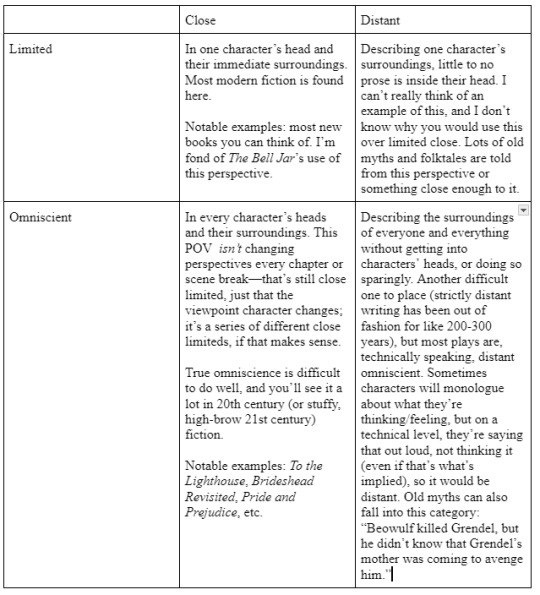
This is a confusing and complex topics, so if you have any questions, hit up my ask box, and I'll answer as best I can. The long and short of it is to understand which POV you're writing from and to ruthlessly stick to it. If you're writing in limited close, under no circumstances should you describe how a character other than your viewpoint character is feeling. Maintaining a solid POV is necessary to keeping the dream in the reader's head. Don't make them stumble by tripping up on POV!
#writeblr#writing#writing advice#fanfic#writers on tumblr#writing questions#creative writing#bookblr#writerscommunity#booklr
716 notes
·
View notes
Text





















Loving You is Easy: On Love.
i love to be a lover <3
Jenny Slate, twitter | A Self-portrait in Letters, Anne Sexton | Bloom Into You, Sayaka Saeki | Kiss Goodnight, IDKHOW | Rêve d’Été, Shanna Van Maurik | You, Carol Ann Duffy | @\chenchenwrites on twitter | No One Belongs Here More Than You, Miranda July | Emily Dickinson, in a letter to Mary Bowels | What Love Will Do To You, Laufey | Pink Starry Flower Field, Jessica Hamilton | I Had a Dream About You, Richard Siken | Sunstone, Octavio Paz (tr. by Eliot Weinberger) | @/brozyglow on tumblr | Poem of the Mountain, Marina Tsvetaeva | Tranquility, Brian McCarthy | I Am a Grand, Living, Buzzing Thing, Emma Bleker | Sophie, The Altogether | When You Ask Me Where I'm Going, Jasmine Kaur | Virginia Woolf, in a letter to Vita Sackville-West | @/lilith-of-stardust on tumblr
[Image ID in alt text!]
#poetry#web weaving#prose#web weaving poetry#literature#parallels#web weave#on love#love poem#perhaps i should wait to post this but ah well! ive finally managed to work up the spoons to write ids! that will not be wasted!#༺✿ web weaves by basil ✿༻
2K notes
·
View notes